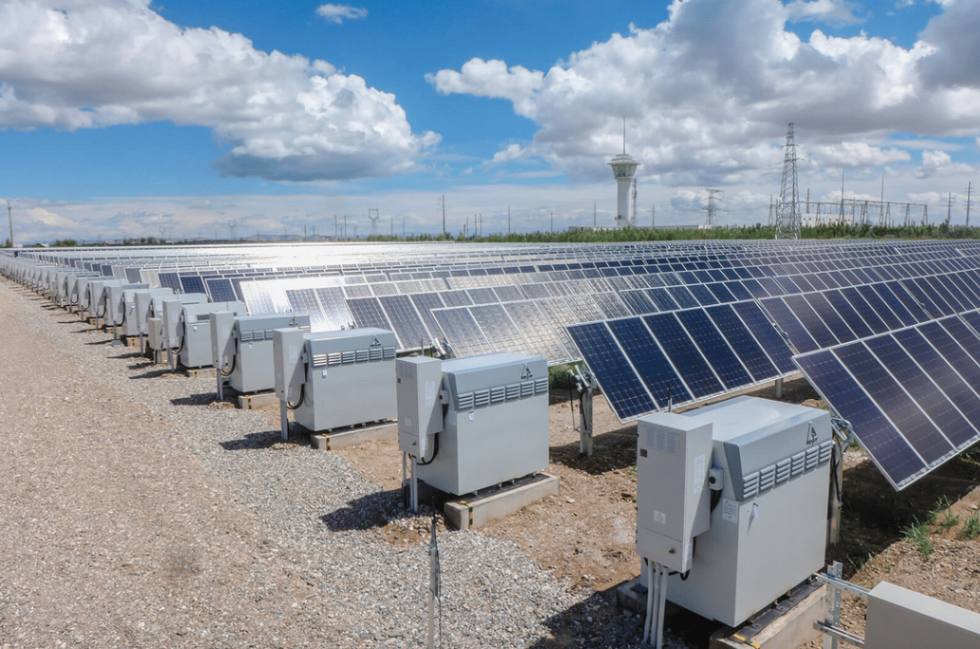
India is currently experiencing a shift towards energy with solar power playing a crucial role in this transition. The country is tapping into its resources through large scale solar farms and rooftop installations. However the unpredictable nature of solar energy presents challenges in maintaining an dependable power supply. To address this issue solar power energy storage systems are emerging as a solution to optimise the utilisation of energy by ensuring that generated energy during periods is available when most needed.
Understanding The Need for Solar Power Energy Storage
Solar energy fluctuates based on weather conditions and time of day. Without storage solutions solar power systems can only function when sunlight is available. This variability can result in imbalances between supply and demand during peak evening hours when energy consumption peaks but solar generation declines.
Energy storage systems store excess solar power generated during the day and release it when needed, providing a continuous and reliable power supply. This not only maximises the utilisation of solar energy but also enhances grid stability and reduces dependency on conventional fossil fuels.
Types of Solar Power Energy Storage Systems
Several technologies are available for storing solar energy, each with unique advantages and applications:
1. Battery Storage
The most popular choice for solar energy storage, lithium-ion batteries offer high energy density, efficiency, and long lifespan. They are well-suited for residential, commercial, and utility-scale solar installations.
2. Thermal Storage
Thermal energy storage systems store solar energy in the form of heat. This heat can be used directly for heating or converted into electricity. Concentrated Solar Power (CSP) plants often use molten salt as a thermal storage medium, allowing them to generate electricity even after sunset.
3. Pumped Hydro Storage
Pumped hydro storage involves using excess solar power to pump water to a higher elevation. The stored water is then released to generate electricity when needed. This method is highly efficient and can store large amounts of energy, but it requires suitable geographical conditions.
Applications of Solar Power Energy Storage
1. Residential
For homeowners with rooftop solar panels, energy storage systems can provide a reliable power supply even when the grid is down. By storing excess solar energy, households can achieve greater energy independence, reduce electricity bills, and ensure a backup power source during outages.
2. Commercial and Industrial
Businesses with solar installations can benefit from energy storage by reducing peak demand charges and ensuring uninterrupted operations. Stored solar energy can be used during periods of high electricity prices, improving the overall cost-effectiveness of solar investments.
3. Utility-scale
Large-scale solar farms equipped with energy storage systems can provide grid services such as frequency regulation, load balancing, and peak shaving. This enhances grid stability and facilitates the integration of more renewable energy sources into the power grid.
4. Rural Electrification
In remote and off-grid areas, solar power coupled with energy storage can provide a reliable and sustainable energy solution. Solar microgrids with storage can supply electricity to rural communities, improving their quality of life and supporting economic development.
What Could Be The Future Prospects?
The future of solar power energy storage in India looks promising. As the technology matures and becomes more affordable, its adoption is expected to accelerate.
Here Are Some Future Prospects:
1. Grid Modernisation
Upgrading the power grid to accommodate distributed energy resources and enhance grid flexibility will be crucial. Smart grids with advanced energy management systems can optimise the use of solar energy storage, improving overall efficiency and reliability.
2. Integration with Electric Vehicles (EVs)
The convergence of solar power, energy storage, and electric vehicles presents significant opportunities. EV batteries can be used as additional storage, providing grid services and enhancing energy resilience.
3. Decentralised Energy Systems
The rise of decentralised energy systems, where consumers generate, store, and manage their own energy, is expected to transform the energy landscape. Solar power storage will be at the heart of this transition, empowering individuals and communities to take control of their energy needs.
Conclusion
Solar power energy storage is a game-changer for India’s renewable energy sector. By addressing the intermittency of solar power, storage systems enhance energy utilisation, improve grid stability, and support the transition to a sustainable energy future. With continued innovation, supportive policies, and increasing awareness, solar power energy storage has the potential to revolutionise how India generates and consumes energy, paving the way for a cleaner, more resilient, and energy-secure future.






